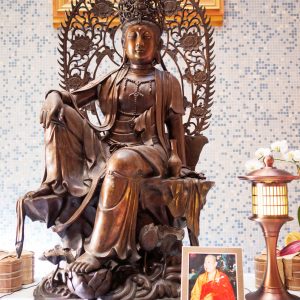
Nietzsche’s method was genealogical. In other words, he looked into the actual structure of how phenomena in the present are formed by the past from which they come into being. Genealogy does not ask absolute questions at any point, and it does not take any kind of moral position, it simply analyzes the existential aspects of culture as we experience it, and then looks at what created that culture.
Nietzsche’s first question was, what is the history of the present? And his answer was that all values and concepts, all ideas of metaphysical truth, are created within human culture without any reference outside. Over time, different moral truths preserve and promote different types of life or culture, which in turn create different kinds of people, which we come to consider good or evil.
The irony is that in order to move further, we have to recognize the untruth of life, to get beyond the good versus evil construct that traps us in our nihilistic identities. Science will never take us there, but will in fact lead us deeper into nihilism, because science is moving towards an objective abstraction of humanity. In a purely scientific frame, humanity would eventually disappear completely, because science objectifies everything in nature, including human beings. Nietzsche feared that people would be misled by science, which he saw as a dead end and the ultimate in nihilism.
Excerpted from the edited transcript: “Buddhism and Postmodernism: Nietzsche [Part 1 of 4]”
Douglas Powers is Provost and Vice-President for Operations at Dharma Realm Buddhist University. Mr. Powers holds an MA in theology and philosophy from the Graduate Theological Union and a BA and MA in political science from the University of the Redlands. He currently teaches Western philosphy and Buddhist studies and practice.
The edited transcript: “Buddhism and Postmodernism: Nietzsche [Part 1 of 4]” is taken from Lecture 3 of the Spring 2008 course: “Buddhism and Postmodernism,” a collaboration between Dharma Realm Buddhist University and the Graduate Theological Union, with Dr. Snjezana Akpinar and Douglas Powers as instructors.